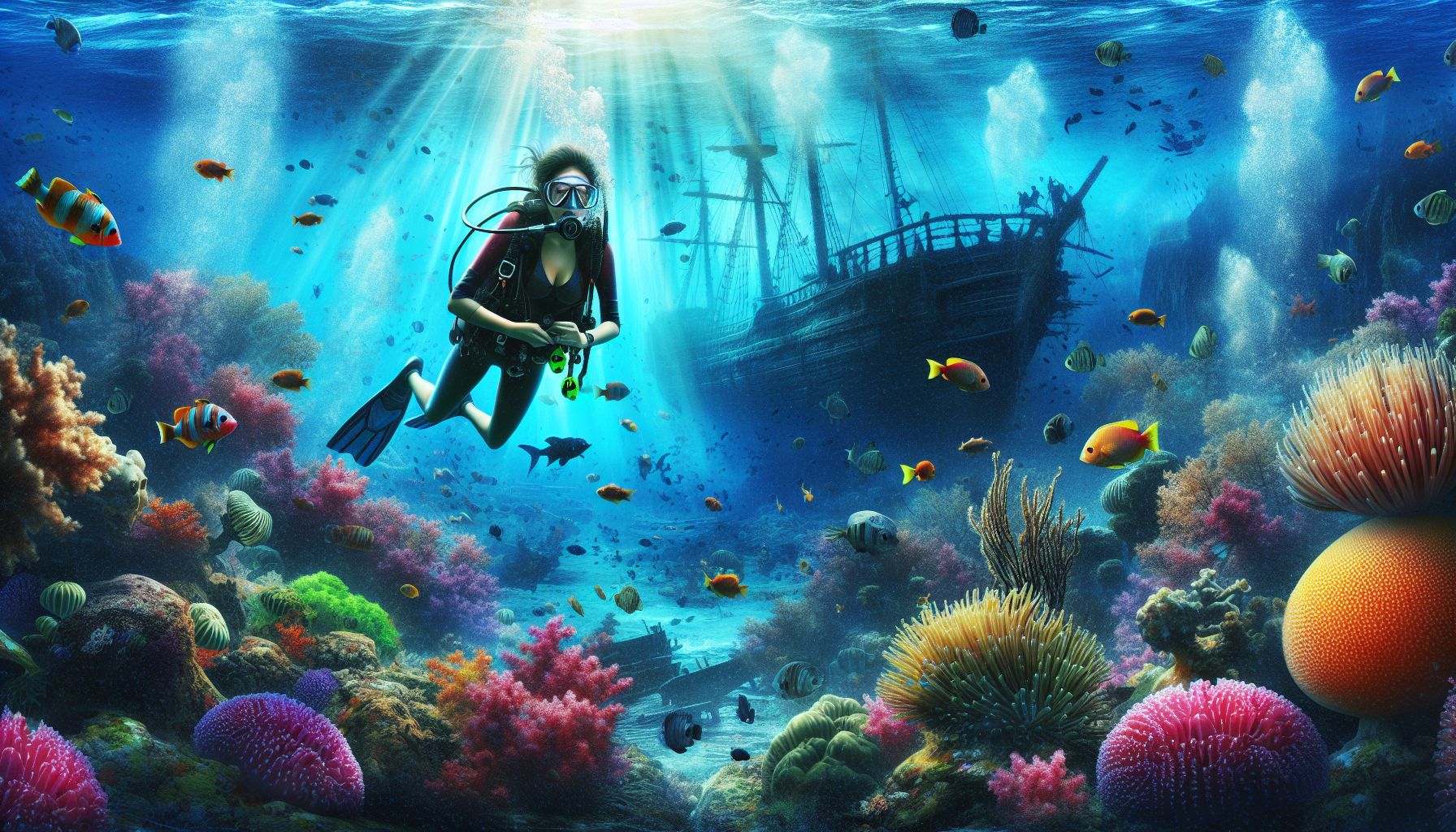Scuba diving is a mesmerizing and exhilarating sport that allows you to explore the depths of the underwater world in a way that is impossible by any other means. It’s an activity that piques the interest of many, from marine biologists to those seeking adventure beyond the land’s surface. In this comprehensive guide, we’ll take you through everything you need to know about scuba diving, from the basics of getting started to the incredible experiences that await beneath the waves.
What is Scuba Diving?
Scuba diving is a form of underwater diving where the diver uses a self-contained underwater breathing apparatus (scuba) that is completely independent of surface supply, to breathe underwater. Divers carry their own source of breathing gas, which allows them greater freedom of movement than with an airline or divers’ umbilical and longer underwater endurance.
Getting Started with Scuba Diving
Before you can dive into the blue, there are a few things you need to tackle:
1. Training and Certification
First and foremost, you’ll need to obtain scuba diving certification from a recognized training agency like PADI (Professional Association of Diving Instructors), NAUI (National Association of Underwater Instructors), or SSI (Scuba Schools International). Courses typically include classroom work, pool dives to learn basic skills, and open water dives to practice those skills in a real-world environment. Upon completion, you’ll receive a scuba certification card or ‘C-card’ which is your passport to dive around the world.
2. Equipment
A standard scuba diving gear set includes a mask, snorkel, fins, regulator, buoyancy control device (BCD), dive computer, and scuba tank. While many divers choose to rent equipment, owning your gear means better fit, comfort, and familiarity, increasing your safety and enjoyment underwater.
3. Physical Fitness
While you don’t need to be an Olympic athlete, a basic level of fitness is important. Diving can be physically challenging, and you should be comfortable swimming and have good control of your breathing. It’s also wise to have a medical examination before starting training to ensure you’re fit to dive.
4. Choosing a Dive Site
As a beginner, your dive instructor will help you choose appropriate dive sites that match your skill level. As you gain experience, you can explore more challenging sites with stronger currents or deeper depths.
The Experience of Scuba Diving
Scuba diving offers an experience like no other. It’s peaceful yet invigorating, allowing you to glide weightlessly in a three-dimensional world while observing fascinating marine life and ecosystems up close.
Marine Life Encounters
Diving provides opportunities to see a myriad of marine animals in their natural habitats — from colorful fish, majestic sea turtles, sharks, and dolphins, to smaller critters like nudibranchs and shrimp. Each dive site has its own unique inhabitants, making every dive an entirely new encounter.
Exploring Coral Reefs
Coral reefs are often referred to as the rainforests of the sea and are among the most biodiverse ecosystems on Earth. Diving gives you a front-row seat to these underwater wonderlands, home to thousands of marine species.
Shipwreck Exploration
Shipwrecks hold a mysterious allure and bear testimonies to maritime history. As an artificial reef, these sunken vessels also support marine life. Diving through shipwrecks feels like floating through a museum caught in time.
Night Dives
Experiencing the underwater world at night is a completely different adventure. Equipped with a dive light, the ocean’s nightlife, including nocturnal creatures and the phenomena of bioluminescence, presents an unforgettable spectacle.
Advanced Scuba Diving Activities
Cave Diving
For the more adventurous divers, cave diving offers an opportunity to explore underwater caves. This specialized form of diving requires additional training and equipment due to the overhead environments and lack of direct ascent to the surface.
Ice Diving
Ice diving is a type of penetration diving where the dive takes place under ice. Because the water is usually clearer, it’s a unique experience to view the underneath of the ice and the serene aquatic life. Like cave diving, it requires additional training and safety measures.
Technical Diving
For those who wish to go beyond the limits of recreational scuba diving, technical diving involves diving beyond the standard depth and time limits and often involves the use of mixed gases and multiple stage tanks.
Conservation and Responsible Diving
Scuba diving also carries a responsibility towards ocean conservation. Divers learn to interact with the marine environment in a sustainable way:
- Respect marine life and avoid touching or disturbing creatures and their habitats.
- Be mindful of buoyancy to avoid damaging coral reefs.
- Participate in or support marine cleanup dives and conservation projects.
Diving Safety Tips
Safety should always be the top priority during diving. Some important safety tips include:
- Never dive alone — always dive with a buddy.
- Plan your dive and dive your plan.
- Stay within the limits of your training and experience.
- Regularly check your air supply and communicate with your dive buddy.
- Ascend slowly and perform safety stops to avoid decompression sickness.
Why Dive?
People are drawn to scuba diving for various reasons:
- The thrill of exploration
- The peacefulness of the aquatic environment
- The challenge and excitement of a new sport
- The desire to learn about marine wildlife and ecosystems
Conclusion
Scuba diving is a gateway to a spectacular world seldom seen by humans. With proper training, equipment, and an adventurous spirit, the ocean’s depths are yours to discover. Each dive promises new sights, sounds, and memories to cherish. As Jacques Cousteau, the father of modern scuba diving aptly put, “The sea, once it casts its spell, holds one in its net of wonder forever.”
Sources
- PADI (Professional Association of Diving Instructors) – https://www.padi.com
- DAN (Divers Alert Network) – https://www.diversalertnetwork.org
- Mares – Scuba diving equipment – https://www.mares.com
